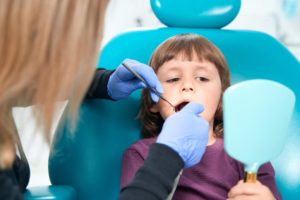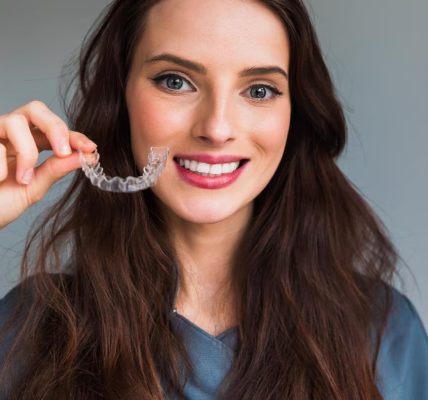When it comes to our children, their health and well-being are always our top priorities. One essential aspect of their overall health that parents often overlook is their oral health. Paediatric dentistry is a specialised branch of dentistry focused on the dental care and oral hygiene of children from infancy through adolescence. In this comprehensive guide, we will explore the significance of paediatric dentistry, its role in children’s oral health, and why early dental care is crucial for a lifetime of healthy smiles.
Understanding Paediatric Dentistry
Paediatric dentistry is a specialised field dedicated to providing dental care to infants, children, and adolescents. Paediatric dentists are dental professionals who have undergone additional training to understand and address the unique needs and concerns of young patients. Their expertise extends beyond standard dental care and includes aspects of child psychology, behaviour management, and specialised treatments tailored to children.
The Importance of Early Dental Care
- Prevention is Key: Paediatric dentistry places a strong emphasis on preventive care. Preventing dental issues in children is easier and more cost-effective than treating them later in life. Regular dental check-ups and cleanings from an early age can help identify and address potential problems before they become serious.
- Establishing Good Oral Habits: Paediatric dentists educate children and parents about proper oral hygiene and nutrition. By instilling good habits early, children are more likely to carry these practices into adulthood, reducing the risk of dental problems.
- Early Detection and Intervention: Some dental issues, such as cavities and misalignments, can develop rapidly in children. Regular check-ups allow paediatric dentists to detect and address these problems early, often with less invasive treatments.
- Preventing Dental Anxiety: Paediatric dentists are trained to create a child-friendly and comfortable environment. Positive early dental experiences help reduce dental anxiety and fear, ensuring that children are more likely to continue seeking dental care as they grow.
Common Services in Paediatric Dentistry
Paediatric dentists offer a wide range of services tailored to the unique needs of children. Some of the most common services include:
- Dental Check-ups: Regular dental check-ups are essential for monitoring oral development, detecting issues early, and providing professional cleanings.
- Dental Cleanings: Professional cleanings remove plaque and tartar buildup, reducing the risk of cavities and gum disease.
- Fluoride Treatments: Fluoride helps strengthen tooth enamel and prevent tooth decay. Paediatric dentists may recommend fluoride treatments based on a child’s risk for cavities.
- Dental Sealants: Sealants are thin, protective coatings applied to the chewing surfaces of molars to prevent cavities.
- Orthodontic Evaluation: Paediatric dentists can identify early signs of orthodontic issues and recommend orthodontic treatment when necessary.
- Restorative Procedures: When cavities or dental injuries occur, paediatric dentists can provide restorative treatments like fillings, crowns, and dental bonding.
- Behaviour Management: Paediatric dentists are skilled in managing the behaviour of anxious or uncooperative children during dental visits, ensuring a positive experience.
- Emergency Dental Care: In the event of a dental emergency, such as a knocked-out tooth or severe toothache, paediatric dentists are equipped to provide immediate care.
Preparing for the First Dental Visit
The first dental visit is a significant milestone in a child’s life, and it’s essential to make it a positive experience. Here are some tips to help parents prepare for their child’s first dental appointment:
- Start Early: Schedule a child’s first dental visit by their first birthday. Early visits help establish a dental home and familiarise children with the dental environment.
- Choose a Paediatric Dentist: Look for a paediatric dentist who specialises in caring for children. Their office will be child-friendly, and the staff will be experienced in working with young patients.
- Talk Positively: Speak positively about the dentist and dental visits. Avoid using words that may create unnecessary fear.
- Practise at Home: Encourage good oral hygiene habits at home by helping your child brush their teeth and teaching them about the importance of oral care.
- Be Supportive: During the visit, be supportive and reassuring. Let your child know that the dentist is a friendly professional who wants to help them have a healthy smile.
- Ask Questions: Feel free to ask the paediatric dentist any questions or express any concerns you may have about your child’s oral health.
Common Concerns in Paediatric Dentistry
Parents often have specific concerns about their child’s dental health. Let’s delve into these concerns:
- Thumb Sucking and Pacifiers: Many children naturally engage in thumb sucking or use pacifiers for comfort. Although common in early childhood, prolonged habits like these can lead to dental issues such as misaligned teeth or bite problems. Paediatric dentists offer gentle guidance on how and when to help your child stop these habits, providing strategies to prevent dental problems without causing stress.
- Cavities: Tooth decay is a common worry for parents due to developing oral hygiene practices and diet. Paediatric dentists help parents understand cavity risk factors and provide prevention strategies, including proper brushing techniques, the role of fluoride, and dietary advice. They may also recommend dental sealants to protect back teeth.
- Teething: Teething can be uncomfortable for babies, leading to fussiness and irritability. Paediatric dentists help parents navigate this stage, suggesting soothing methods like teething rings or gentle gum massages. They also stress the importance of maintaining a clean oral environment as teeth emerge.
- Oral Hygiene: Parents often wonder when and how to start brushing their child’s teeth. Paediatric dentists offer age-appropriate oral hygiene guidance, advising on when to begin brushing, suitable toothbrushes and toothpaste, and effective brushing techniques. This sets the foundation for lifelong dental health.
- Diet and Nutrition: Diet significantly impacts oral health in growing children. Paediatric dentists provide expert advice on a balanced diet that supports healthy teeth and gums. They recommend dental-friendly foods and counsel on moderation. Understanding diet’s impact empowers parents to make informed choices for their child’s well-being.
Paediatric dentistry plays a crucial role in ensuring that children develop and maintain healthy smiles from a young age. By emphasising preventive care, early detection, and positive dental experiences, paediatric dentists set the foundation for a lifetime of excellent oral health. Parents can support their child’s dental journey by scheduling regular check-ups, practising good oral hygiene at home, and addressing any dental concerns promptly. Remember that early dental care is an investment in your child’s well-being, ensuring they can smile brightly for years to come.







